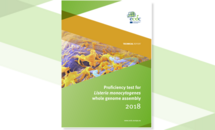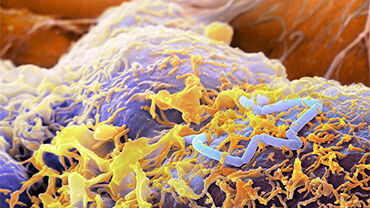Proficiency test for Listeria monocytogenes whole genome assembly 2018
This report presents the results of a proficiency test to evaluate the inter-laboratory reproducibility and portability of Listeria monocytogenes (Lm) genome assemblies in the EU/EEA.
Executive Summary
The aim of the test was to support national public health reference laboratories performing whole genome sequencing-based typing in generating good quality and comparable genome assemblies for Lm.
All national public health reference laboratories with WGS typing capabilities in the EU/EEA were invited to take part in the exercise.
There were 14 participants, submitting assembled genomes for 15 sets of raw sequence reads. More than one assembly pipeline was allowed per participant, and the results per pipeline were compared to the reference assembly generated by ECDC on several quality metrics. Ten out of 14 participants had at least one concordant pipeline, and the other four were further assisted after the proficiency test to identify the root cause of the issue and improve the results.
Assemblies can be used for many analyses, including whole and core genome multilocus sequence typing (wg/cgMLST) data. Good quality assemblies are therefore necessary to produce wg/cgMLST data that are comparable between laboratories.
ECDC supports the integration of WGS data into surveillance and multi-country outbreak investigations of foodborne diseases including listeriosis as one of the priority diseases. Countries can perform the typing at national level or submit assemblies to the European Surveillance System (TESSy). For European surveillance of listeriosis, ECDC will only accept from laboratories assemblies that have been generated by a concordant pipeline as verified according to the methodology described in this report.
Download






